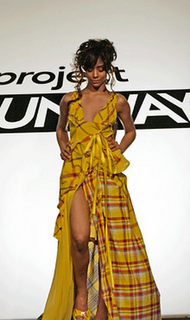As a prelude, the Fresh Air of 13 March served to get this post (hovering since Year Zero was released last Spring) out of my head. It’s worth listening to.
If you don’t know that the music industry is changing, you’re hiding under a rock. Everyone ought to be aware by now that soon, the very meaning of music as a media and the business will be drastically different from how it is now, especially how it was two years ago. How we purchase music and, to me, more saliently, how we listen to it is undergoing a major revolution.
There are three major examples of this that have recently profoundly influenced my relationship with the industry—Girl Talk is one just by himself, but there has also been the release of Nine Inch Nails’ Year Zero and Radiohead’s In Rainbows.
I love Girl Talk, and an entry on him is coming soon, but for now, I want to address the latter 2. Both albums are similar in that they were released under conditions that were nothing short of revolutionary. For the full story of Year Zero’s release, go to the Wikipedia entry or for the full DETAILS, go to the NIN wiki and for In Rainbows, go to the Wikipedia entry or check out the backlog “In-Rainbows” blog-tags on Radiohead_At/Ease (many of my later links are cribbed from this, the best Radiohead resource on the net).
Basically, Nine Inch Nails leaked tracks on USB keys that were left in restrooms and such containing, along with a track or two, some kind of coded or hidden message that led you to a website that had further hidden or coded messages or some other kind of statement coinciding with the concept of the album. All of it worked together to tell a narrative that registered as if we are all unknowingly trapped in an oppressed society, drugged on some undetectable substance by an authoritarian government. They didn’t just decimate the fourth wall, they decimated all four of them at once—the album’s release blurred the lines between the artist and the audience, reality and a nightmarish dreamscape, perceptions of reality and certainty, and most importantly (in my opinion) self-expression and public consumption/social meaning.
Radiohead’s release held a much more limited meaning artistically, but in the sense of the business, their model is incredibly relevant. One initial report put album sales at a staggering at 1.2 million, although these numbers were later thrown into doubt. Still it seems, that the average listener paid somewhere around 8 dollars, but theoretically only 2/5 downloaders paid. Those numbers are in doubt, as Jonny Greenwood points out in a more recent interview. And this is on top of the stolen ones.
The first conclusion I’m drawing here is that the release of albums is getting much, MUCH more creative of late; there have been other marketing ploys of late—international bonus tracks, iTunes incentives, etc. But Nine Inch Nails and Radiohead achieved unprecedented levels of media buzz and fan exuberance. One reviewer (Pitchfork) of In Rainbows put it thusly—
Like many music lovers of a certain age, I have a lot of warm memories tied up with release days. I miss the simple ritual of making time to buy a record. I also miss listening to something special for the first time and imagining, against reason, the rest of the world holed up in their respective bedrooms, having the same experience. Before last Wednesday, I can't remember the last time I had that feeling. I also can't remember the last time I woke up voluntarily at 6 a.m. either, but like hundreds of thousands of other people around the world, there I was, sat at my computer, headphones on, groggy, but awake, and hitting play.
So these creative releases are certainly heightening the interest in the album and the interaction with the band, as Trent Reznor pointed out by saying in an interview on the Spiral (quoted from Wikipedia, for the Spiral—registration required): “'marketing’ is an inaccurate description of the alternate reality [marketing], and that it is ‘not some kind of gimmick to get you to buy a record - it IS the art form ...’”.
The second conclusion is a terrible one for the future of music, in my opinion. Despite this fan excitement, despite its ostensibly free release, In Rainbows was STILL stolen (DISCLOSURE: and I say this as a hypocrite, after trying to buy the album properly for $10, there was a huge internet snafu due to China issues—so I torrented it like so many other people).
The third conclusion here is that two of the most innovative albums of the last year or so were innovative NOT because of the artfulness of their musicality, but for the artfulness of the business surrounding their release. Indeed, musically, I was disappointed by both albums, although I think it had more to do with me being caught up in that aforementioned fan exuberance than it did with a lack of quality on the part of the albums themselves (I passionately love In Rainbows). But as Trent Reznor pointed out, the ideas concerning the release become some sort of meta-statement. The release became the album and the art itself.
Clearly, we as a society are rethinking what it means to purchase and appreciate music. And as Thom Yorke and David Byrne pointed out in their Wired interview, the very value of music is at stake. I’m curious to see where this will go in the next few years.
As an epilogue, and proof that Reznor and Nine Inch Nails are not letting up, Ghosts I-IV is getting RAVE reviews (VSL, RStone), and they're still getting innovative with fan interaction.
-Sean
